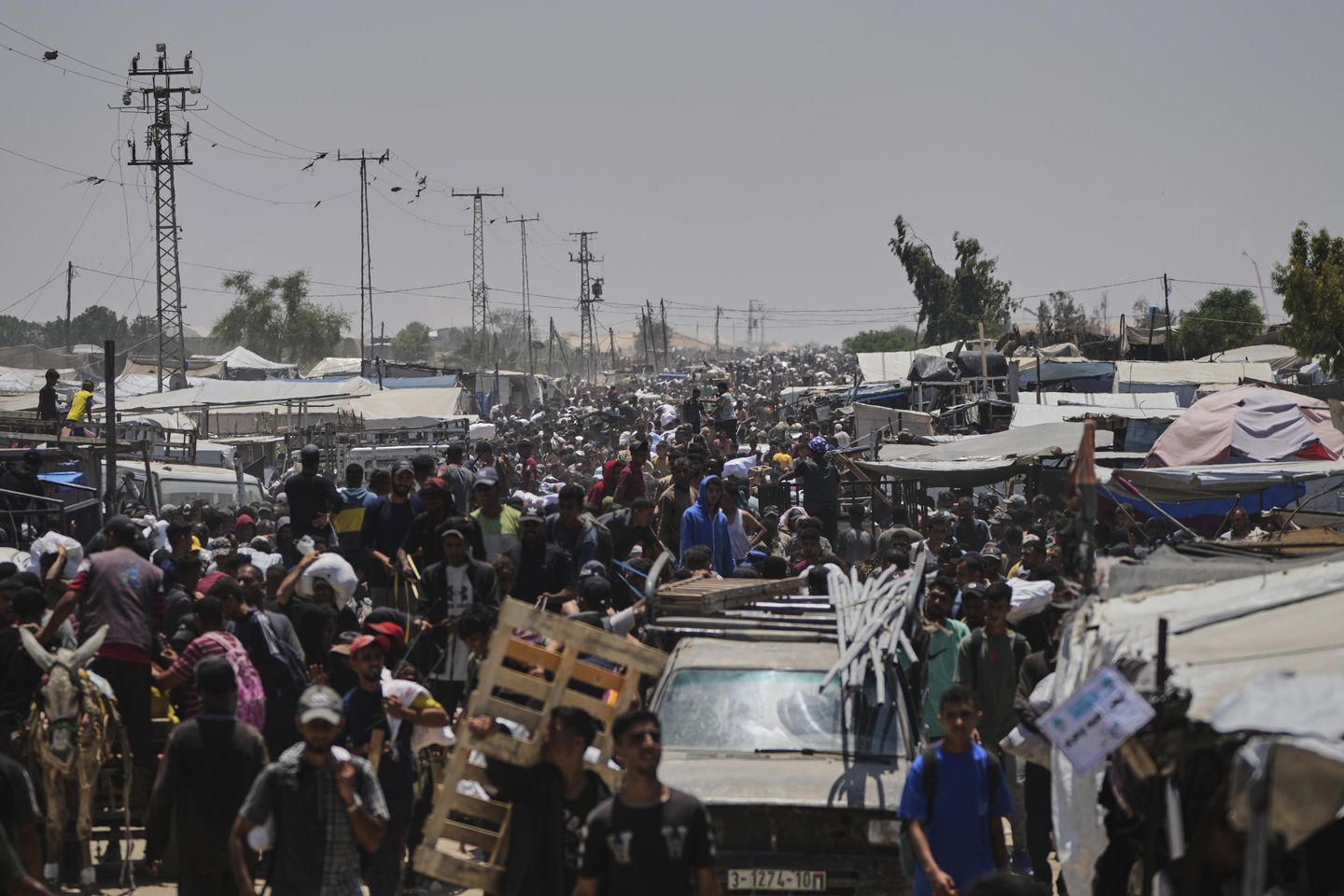
Officials with the World Central Kitchen aid organization said they have run out of ingredients necessary to prepare meals for hungry Palestinians in the Gaza Strip. On Sunday, the U.S.-based group said its supply trucks remain stuck at the border.
The organization served 80,000 meals on Saturday, and while the resupply efforts have been suspended, their teams are continuing to bake bread and distribute water to residents of the Palestinian enclave, WCK officials said.
“Our field kitchens are prepped and ready to resume cooking the moment new supplies arrive,” the WCK said. “Every second counts. Families in Gaza rely on these hot meals.”
This is the second time that a lack of access has forced WCK to pause operations. Work crews resumed operations about a month ago after all aid was halted at the border for 12 weeks.
“Since then, our kitchen teams have worked nonstop to serve tens of thousands of meals daily,” the WCK said.
Last week, the U.S.-backed Gaza Humanitarian Foundation said it had distributed 78 million meals inside the Gaza Strip since its operations began about two months ago. A spokesman said GHF remains the sole humanitarian organization able to deliver aid at scale inside Gaza.
The United Nations has regularly criticized GHF while insisting that it is the only organization with the expertise to deliver humanitarian assistance, GHF spokesman Chapin Fay said.
“The truth is simple: the U.N. can’t deliver aid, not because they don’t want to, but because they are unable to operate in this environment without adapting, which they refuse to do,” Mr. Fay said.
He said at least 400 U.N. distribution points stand empty while thousands of pallets of aid are untouched inside Gaza.
“It’s not a question of access, it’s a question of execution,” Mr. Fay said. “The outcome is the same: people go hungry, and that is unacceptable. The U.N. and other major agencies are failing to meet the moment.”
The Gaza Humanitarian Foundation is ready to help the U.N. or any other legitimate organization get humanitarian aid to those in need, officials said.
“The GHF was created to do what others won’t or can’t do,” Mr. Fay said. “We are on the ground, operating in real time, and getting food to the people who need it.”








